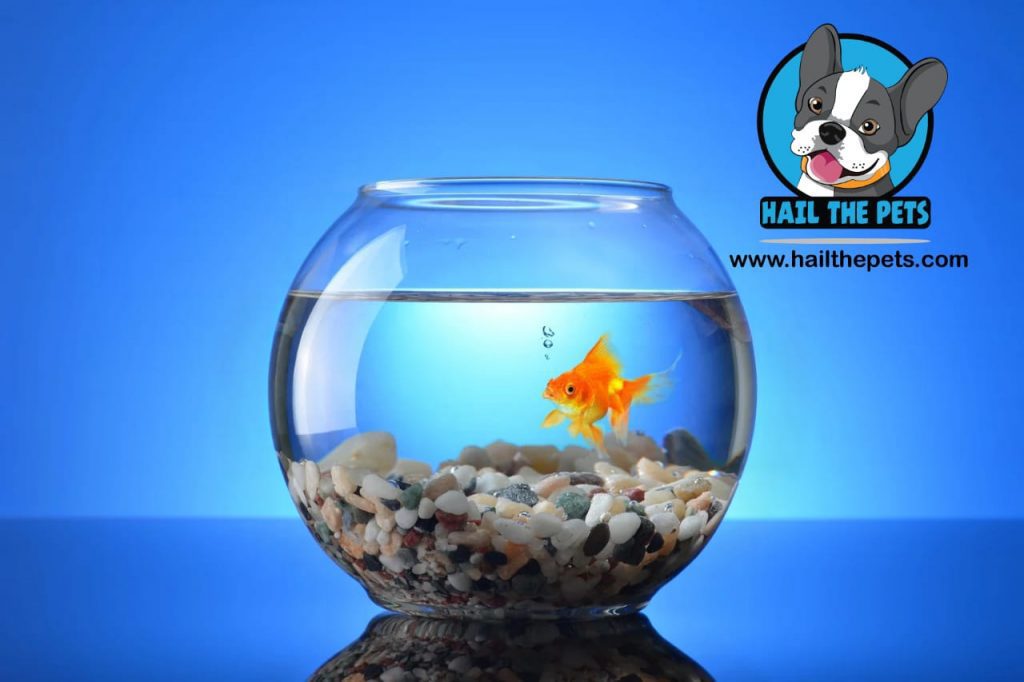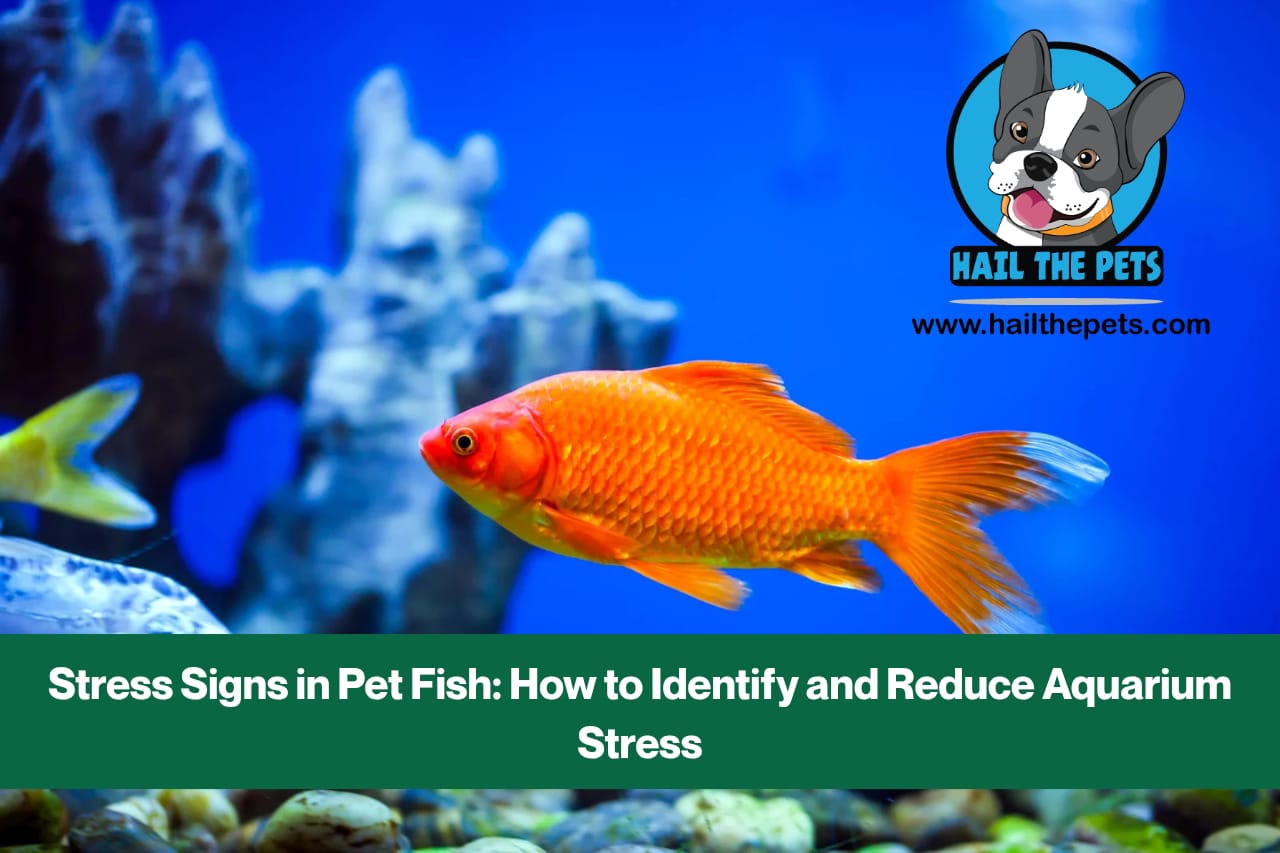Have you ever seen abnormal behaviors in your fish as it hides too often and rejects eating while doing sudden movements throughout the tank? If so, you might be thinking why is my fish stressed?
Just like humans, fish can experience stress, and it’s very important for a fish owner to recognize the stress signs in pet fish. Whether you are a seasoned fish keeper or you are just a newbie ,you should understand common fish behaviors and strategies to reduce stress signs in pet fish so that your tanks will become peaceful aquatic homes.
Read more: Clownfish Care: A Guide For Maintaining A Healthy Home Aquarium
In this guide, we’ll investigate all you need to know about keeping your fish in a state of joy and good health. From answering questions like do fish hide when stressed to creating the best tank setup for reducing fish stress, we’ve got you covered.
We will break down water quality requirements for healthy fish plus provide guidance about detecting symptoms of fish illness or stress. By the completion of this article you will gain sufficient knowledge and practical tools needed to build a healthy aquatic environment for your finned pets. Let’s dive in…

Understanding Fish Behavior
Fish movements contain several interesting patterns that can be difficult to understand. Swimming patterns of fish, their feeding behavior and their social interactions form the basis of this explanation.
When fish are healthy they move with even patterns and they eagerly consume any food placed in their environment. Under stressful situations fish show abnormal behaviors. It is necessary to identify these stress signs in fish because they signify urgent intervention needs.
Learn more about: Interesting Facts About Tetra Fish: Exploring Their Types, Nutritional Needs, and Hygiene Care
Common Fish Behaviors Explained: What’s Normal and What’s Not?
Fast stress detection in fish depends on knowing their regular behaviors Here are some behaviors you should watch for:
- Hiding: Fish tend to hide their bodies as a reaction to stress. Your fish takes shelter more often than swimming out because stress and illness might be the cause.
- Erratic Swimming: Discomfort leads your fish to swim irregularly and rub their bodies against objects in the tank.
- Loss of Appetite: Fish typically lose their appetite in stress and this behavior develops into additional severe health concerns.
- Color Changes: Certain fish might shed their bright hues when are under stress
- Gasping at the Surface: This could indicate bad water quality or insufficient levels of oxygen.
By observing these behavioral patterns, you can take action before stress signs in pet fish are increased to drastic levels and lead to serious complications.
Check out: The Ultimate Guide to White Seabass Fish: Exploring their Habitat, Types, Nutrition, and Care
Why Is My Fish Stressed? Finding The Root Causes
Fish are very sensitive, so even minor changes in their surroundings can create disturbance for them. But there are many common reasons in reply to the question of why is my fish stressed? Let’s explore possible causes ;
- Water Quality: Fish rely on clean, well-balanced water to survive. High ammonia , nitrate or nitrites levels in water can affect their survival.
- Overcrowding: Too many fish in a small tank can increase the disturbance by creating competition for food and other resources among them.
- Incorrect Tank Setup: If a tank is not properly designed for instance it does not have sufficient hiding spots and proper lights. This can make fish feel insecure in the tank.
- Sudden Changes: Fish experience shock due to swift temperature changes and alterations in environment pH levels and water chemical composition.
- Aggressive Tank Mates: Some fish species possess territorial behavior which leads to disturbances that produce hostile underwater conditions.
Learn more about: How Can You Tell If a Fish is Stressed?
By identifying these triggers, you can take steps to create a more peaceful environment for your fish and to reduce the stress signs in pet fish.
How to Tell If Your Fish Is Sick or Stressed: Key Differences
The distinction between stress and sickness is not always easy to make. Below is how you will be able to identify that your fish is stressed or has diseases.
- Stress Signs:Hiding, erratic swimming, loss of appetite and color changes.
- Illness Signs:Visible spots, sores, bloating or abnormal growths.
It would be best if you placed the fish in quarantine if you suspect it has an illness or consult a veterinary doctor or aquarist.
How to Reduce Stress in Aquarium Fish: Practical Tips
Making your fish’s living environment devoid of stress is simpler than you might imagine. Yet what exactly does a stress-free aquarium entail? Here are major aspects to consider and within each of these, there are numerous action items that provide specificity and help in reduction of stress signs in pet fish.
Know more about: Understanding The Ecological Role Of Fisher Cat: Everything You Need To Know About These Fascinating Creatures
- Maintain Water Quality:Test and adjust water parameters regularly so that they are within the proper range for the fish species you keep.
- Provide Hiding Spots: Hiding spots can be created by adding both plants and caves along with decorations which let fish seek shelter for their safety.
- Avoid Overcrowding: Follow the guideline of “one inch of fish per gallon” rule to avoid overcrowding in the tank.
- Stable Environment: Maintain a stable temperature and light conditions in the tank.
- Choose Compatible Tank Mates:Before adding different species in the tank , investigate if they can create a harmonious environment together in the tank.
- Minimize Noise and Disturbances: Place the tank in a quiet area to reduce stress from external noise.
Check out: Breeding Fish: A Beginner’s Guide to Understanding Fish Reproduction
By following these steps, you’ll be able to create a calm environment that will promote your fish’s well-being.This will create happiness in your life too.

Do Fish Hide When Stressed? Understanding This Common Behavior
Aquarists frequently ask do fish hide when stressed? The answer most certainly is yes. Hiding is a common fish defense mechanism. The more we study fish and their environments, the more we realize how closely related their behavior is to that of many animals we keep as pets or farm.
If your fish appear to be hiding more than usual, then detect the root cause. Take a look at the water. Check for quality. Look for the signs of illness among fish and make sure there are plenty of places for your fish to hide in the tank.
Best Tank Setup for Reducing Fish Stress: Creating a Safe Haven
The proper arrangement of an aquarium for stress-free fish should include a set of specific features to ensure good results.Some of them are as follows!
- Proper Filtration:An appropriate filtration system produces clear water that remains high in oxygen.
- Adequate Space: Make sure your aquarium should fit the number of fish properly so that each fish gets enough swimming space.
- Natural Decoration: The most soothing decorative elements for aquaria consist of natural plants and objects which naturally enhance the sense of being in the wild.
- Proper illumination: Use a timer to create consistent day-night conditions along with suitable tank illumination.
- Regular Maintenance:Weekly cleaning and water replacement maintain the tank free from dangerous substances that accumulate.
Check out: Ten Deadly Fish Diseases: Tips And Tricks To Prevent Them
A well-designed tank not only reduces stress but also enhances the beauty of your aquarium.
Water Quality and Fish Health: The Lifeline of Your Aquarium
Water quality and fish health are deeply interconnected. Poor quality water is one of the leading causes of fish stress and disease. To keep conditions optimal:
- Assess every week the water conditions (pH, ammonia, nitrite, and nitrate).
- Users should regularly exchange water reservoirs to maintain good water conditions by replacing 20-30% water weekly.
- Water conditioner works to remove chlorine together with chloramines from the water.
- Feeding fish excessively must be avoided because leftover food produces decay in the water.
- If you want to prioritize the health of your fish then do prioritize the water quality.
Read more: Understanding Fish Nutrition: How to meet the Healthy Dietary Needs of Different Fish Breeds
The Role of Diet in Reducing Stress Signs in Pet Fish: Fueling Happiness
A healthy, balanced diet is of utmost importance for keeping fish free of stress and in good health. Fish, just like humans, need the right kind of food in adequate amounts to live long and prosper.
- High-Quality Food: Select very good pellets, flakes, or frozen food specific to the species of your fish. Do NOT overfeed!Excess food in the water is one of the biggest problems with water quality.
- Variety is Key:Use a diverse selection of proteins, vegetables, and supplements so your fish receive all the nutrients they require.
- Feeding Schedule:Keep to a steady timetable for meals. Feeding little creatures too much or too erratically can stress them out and lead to health problems.
- Special Treats:From time to time, delight your fish with an occasional treat of brine shrimp or bloodworms to keep their keen interest levels high.
Learn more about: 10 Best Birds for Apartment Living
The best way to boost the immune system and to reduce the stress signs in pet fish is the varied and nutritious diet.

Conclusion
Understanding stress signs in pet fish combined with fast action helps maintain constant aquatic life conditions within your house. The initial step for stress determination is to uncover the potential sources that create stress in fish. There are numerous potential stressors falling into the categories of environmental quality, physical habitat and of social interactions within and outside the population of fish in a tank.
The maintenance of healthy aquatic systems requires similar attention as required in management of the human environment. We should learn well to identify stress signs in pet fish. Although aquarium fish seem easy to care for they need particular conditions to thrive healthfully.
Beyond fish the overall aquarium operates better when it provides no stress to residents. You also get benefit from stress free aquarium as the overall viewing experience improves dramatically! By following the mentioned tips you really can enjoy the beauty and tranquility of your underwater world.
